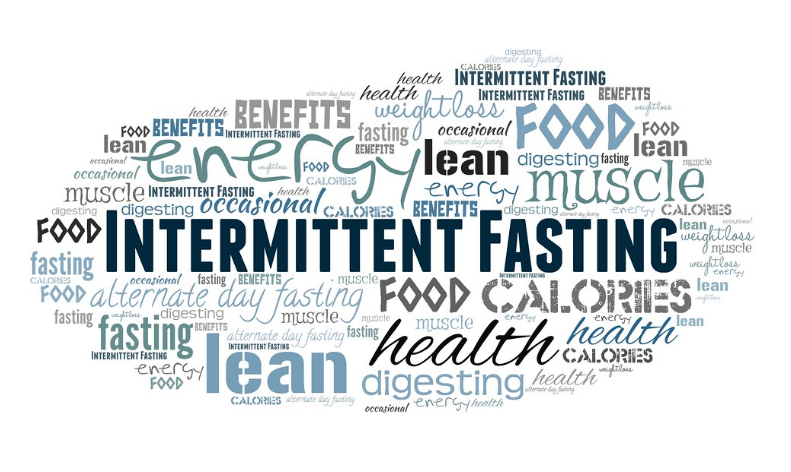 Diet
Diet
Table of Content
I hope you enjoy reading the rest of this blog post.
If you are serious about weight loss, forming healthy habits and fixing your diet & health, take a look at our proven weight loss program. We will show you what works, help you avoid mistakes and you will see real results. Learn more about our program and the results you can expect.
Intermittent fasting is an eating pattern that involves cycling between periods of eating and fasting. It’s a way of eating that has gained popularity in recent years because of its potential health benefits, including weight loss, improved insulin sensitivity, and reduced inflammation.
Because the science is not yet fully out on whether or not the benefits of intermittent fasting are long-lasting and valid, many hold a pessimistic viewpoint on the matter. In other words, it’s a common question as to whether or not intermittent fasting works.
With that said, in what follows, we’ll be aiming to answer that very question, ultimately getting to the bottom of it and providing you with the information that you need to know in order to make your own decision!
The mechanisms by which intermittent fasting may exert its effects on health are not fully understood, but it is thought to improve insulin sensitivity by providing a period of rest for cells that are constantly processing glucose. Insulin is a hormone produced by the pancreas that facilitates the uptake of glucose from the bloodstream into cells, where it can be used for energy.
When an individual consumes food, their blood glucose levels increase, and insulin helps to shuttle the glucose into cells. If an individual consumes too much food too frequently, their cells may become resistant to insulin, a condition known as insulin resistance. Insulin resistance is a risk factor for the development of type 2 diabetes and other related health issues.
In addition to improving insulin sensitivity, intermittent fasting has also been shown to have other potential health benefits. For example, it may help to reduce inflammation, improve heart health, and even increase lifespan. It may also be effective for weight loss, although it’s important to note that weight loss is not always the main focus of intermittent fasting and it’s not always a guaranteed result.
Also Read: How Intermittent Fasting Can Help You Lose Weight
Intermittent fasting has become a popular way of eating in recent years, with proponents claiming that it has a range of health benefits and for good reason.
In fact, while the research is not yet conclusive on the subject, there is some evidence to suggest that intermittent fasting is generally safe and effective for the majority of the general public.
On the other hand, intermittent fasting may not be safe or suitable for everyone. In other words, there are exceptions.
Some of the key populations unsuited toward the practice of intermittent fasting include but are certainly not limited to people who may have medical conditions that contraindicate fasting such as type 1 diabetes or certain types of cancer, women who are pregnant, individuals who are predisposed to eating disorders, and young children under the ages of 18.
Women’s bodies in particular are highly sensitive to energy needs, so it’s important to implement IF with care and planning. Otherwise, it could disrupt hormonal health and cause problems.
In short, it’s always a good idea to talk to a health professional or nutritionist before starting any new eating plan no matter which population you fall under and more so if you have any underlying health conditions.
Also Read: The Right Way To Do Intermittent Fasting
One of the most common reasons people try intermittent fasting is for weight loss. If you’re following a calorie-controlled intermittent fasting plan and you’re losing weight steadily, it’s likely that the plan is working for you.
Some people find that they have more energy while fasting, as they’re not constantly digesting food. If you’re feeling more energetic while fasting, it could be a sign that the plan is working for you.
Intermittent fasting has been linked to improved cognitive (brain) function, including increased focus and concentration. If you’re feeling more focused while fasting, it could be a sign that the plan is benefiting you.
Some people find that they sleep better while fasting, possibly due to the fact that they’re not eating late at night. If you’re noticing improved sleep while fasting, it could be a sign that the plan is working for you.
It’s important to choose an eating plan that you can stick to long-term, and one way to do this is to ensure that you feel satisfied. If you’re able to stick to your intermittent fasting plan and you’re feeling satisfied, it’s likely that the plan is working for you.
It’s worth noting that these are just a few ways to know if intermittent fasting is working for you, and it’s not an exhaustive list. Other ways to know whether or not intermittent fasting is working include reduced cravings, improved digestion and healthy bowel movements.
Does intermittent fasting work? IF does seem to provide weight loss and health benefits, if it is practiced correctly.
With that said, it is worth repeating that it’s always a good idea to talk to your doctor or a nutritionist before starting any new eating plan and to pay attention to your body’s signals. If you’re experiencing negative side effects or you’re not feeling satisfied, it may be time to reassess your intermittent fasting plan.
Table of Content